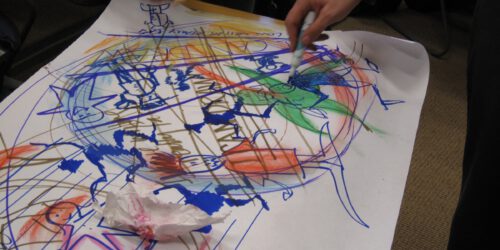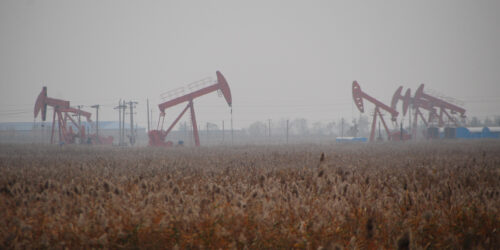Historians for Future join the global climate strike
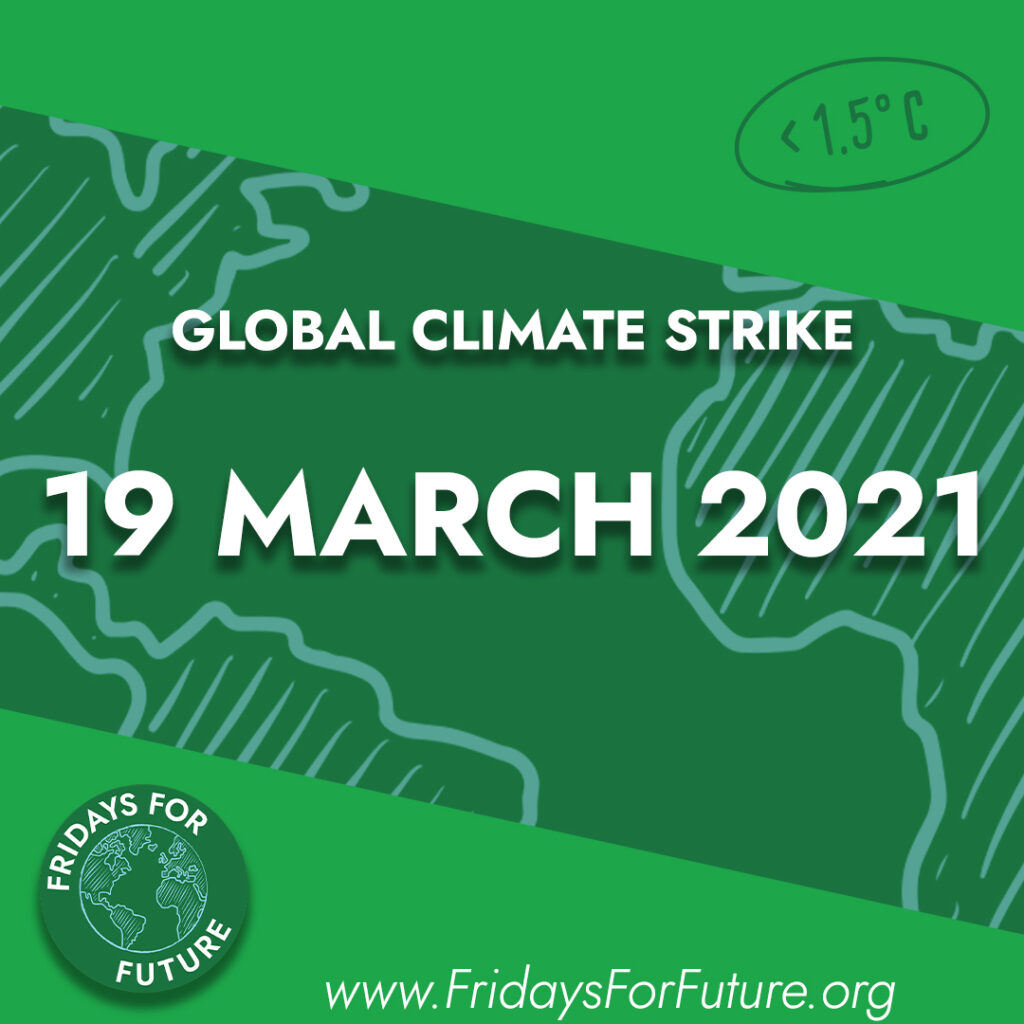
Today we’re joining the global climate strike organised by Fridays for Future and other environmental groups around the world. About a year ago, during the first wave of the Covid-19 pandemic and national lockdowns, we made our first attempt at founding a Historians for Future climate group. From the start, we faced the challenge of wanting to develop activist strategies while not being able to meet in person or protest in the streets, and the pandemic exacerbated the precarious position of many of our members. Still, we managed to collaborate on digital platforms—we wrote a statement on the role of history in dealing with the climate crisis, initiated several activist outreach projects, and have been working to expand our impact. The group’s digital collaboration remains a challenge, but it has opened up new opportunities—not only to build an international activist community but also to care for the living relationships on which we all depend. In this blog post, our members look back at the first year of H4F, share their plans for the climate strike, and discuss what they’re hoping to achieve in the future.
Lea Beiermann – PhD candidate, Maastricht University
I co-founded H4F in February 2020 after noticing that some historians had joined the global climate strikes and were using the #HistoriansforFuture hashtag on Twitter. I have always been interested in how learning about history can change our perspective on the present and enable us to imagine different futures. So, I thought it worthwhile to form a group and see how we, as historians, can help imagine and realise more just and sustainable climate futures. But just weeks after my first two collaborators and I had started to discuss plans for our group, we went into national lockdown, and my collaborators had too much else going on in their lives to work on H4F projects. A few months later, however, a colleague from Bern, Isabelle Schürch, got in touch and we decided to try again. This time we managed to find more collaborators and H4F has been going strong since then. I still remember thinking only a year ago that writing a short statement was the least I could do—now I’m amazed by all the great work H4F members have done! For the global climate strike on March 19, I have ordered spray chalk and stencils from Fridays for Future and will spend the day painting the streets in my city.
Dr. Hillary Briffa – Lecturer in Defence Studies, King’s College London
I joined H4F in September 2020, in response to a call for volunteers on Humanities and Social Sciences Online (H-Net). I was drawn to the organisation as both an academic and an activist. Academically, I am part of the Centre for Grand Strategy at King’s College London, which, through the ‘Climate Change and International Order’ project, is leading an interconnected, interdisciplinary research agenda that interrogates the immense changes underway in the ordering rules, systems and principles which organise our warming planet. In addition to our scholarly interest in the subject, our Centre has a strong methodological emphasis on applied history: using lessons from the past to inform policymaking to better serve the long-term future. This aligns perfectly with the social responsibility approach of H4F to show the importance of the role of history in addressing the climate crisis and to derive, from an understanding of historical processes, alternatives to today’s production of goods, transportation, or our economic system.
Personally, my research focuses on small state security in the international system, and of course many small states are the most impacted by the climate crisis, despite emitting the least. At the same time, they play a leading role in negotiations, legislation and initiatives geared towards climate security, as recently evidenced by dynamic approaches to the blue economy. Although based in London, I am originally from Malta—which was the country that took the principle of Common Heritage of Mankind to the UN to underpin legislation on climate change. This equitable approach to climate justice informed the three years I spent as Malta’s youth ambassador to the OSCE, lobbying its 57 member states on proposals to further its comprehensive approach to security, including the environmental dimension. Altogether, therefore, I have a sustained interest in the historically informed approach of H4F, and as both a scholar and social activist, am delighted to be part of this group to help further its research-led environmental mission. I look forward to raising awareness online on March 19th, even as we navigate this lockdown period!
Dr. Sam Grinsell – Postdoctoral Researcher, University of Antwerp
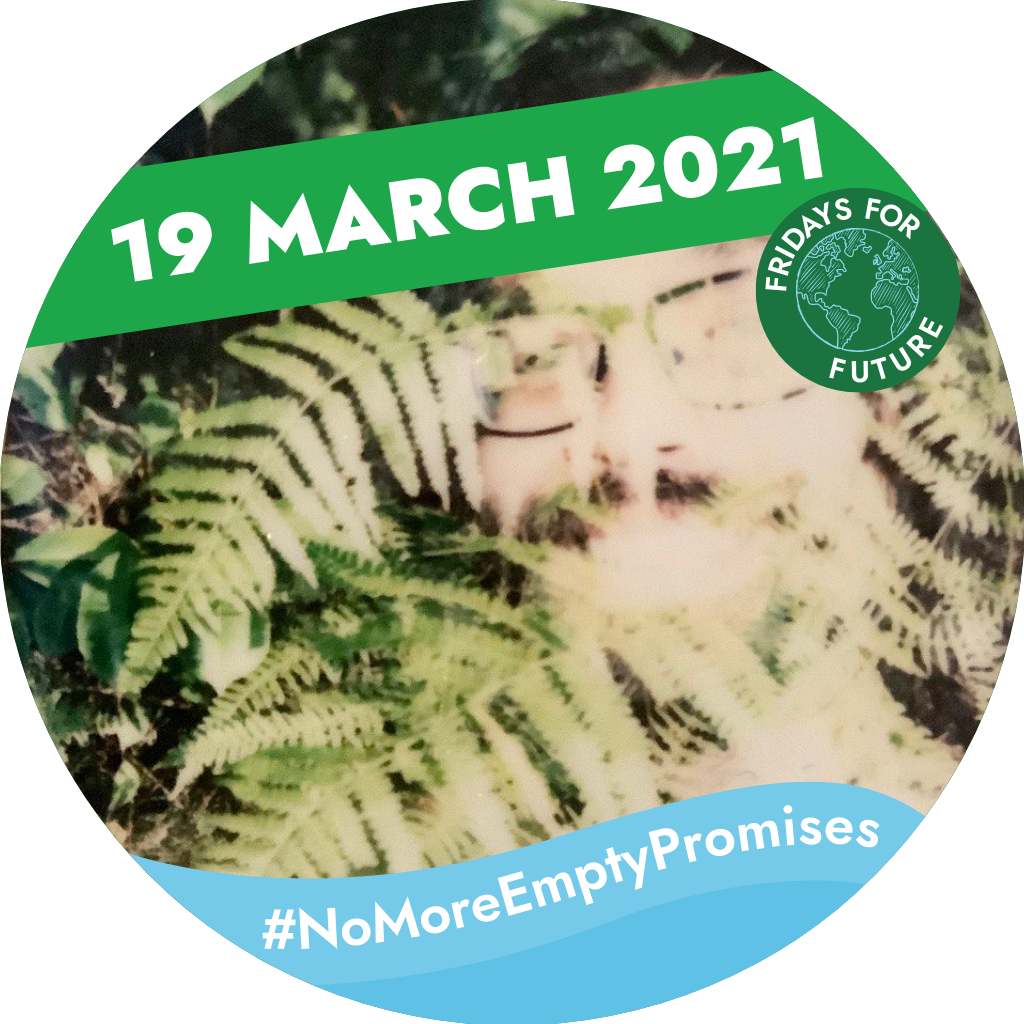
I joined H4F in the autumn of 2020, after coming across the statement through Twitter. Reading those words, I felt that here was a group that was really trying to realise the radical potential of historical thinking; this was something I’d long aspired to do, but had struggled to actually find opportunities for within academic discourse. I’ve had many conversations with people over the years in which we wondered how people could be connected to the realities of climate change, how our imaginations could be stretched to perceive such global, long-term phenomena as global warming, species extinction or the Anthropocene. Despite believing that history (and other humanities disciplines) has great potential to work on communicating these ideas, I find a lot of time is spent developing precise skills of scholarly research and discussion with little attention to contributing to big societal questions. So I was very excited to join the group and connect with like-minded scholars from across the world.
As a social historian, I am interested in how “the social” works: Who is included? Who is excluded? And why? It is not really helpful to think in terms of societies and “the environment” as two separate spheres. The climate crisis is not “out there”, it is with us. And it affects how we act as individuals, as a society, as states and as a global community, and vice versa. My role at H4F is to promote the potential of history for critical thinking and challenging unilinear narratives, because there have always been alternatives, choices and different paths to follow. The protests this year are more important than ever, because it’s about priority: maybe this year, it’s by bike (a very socially-distanced form to show presence on 19 March).
Elizabeth Hameeteman – PhD candidate, Boston University
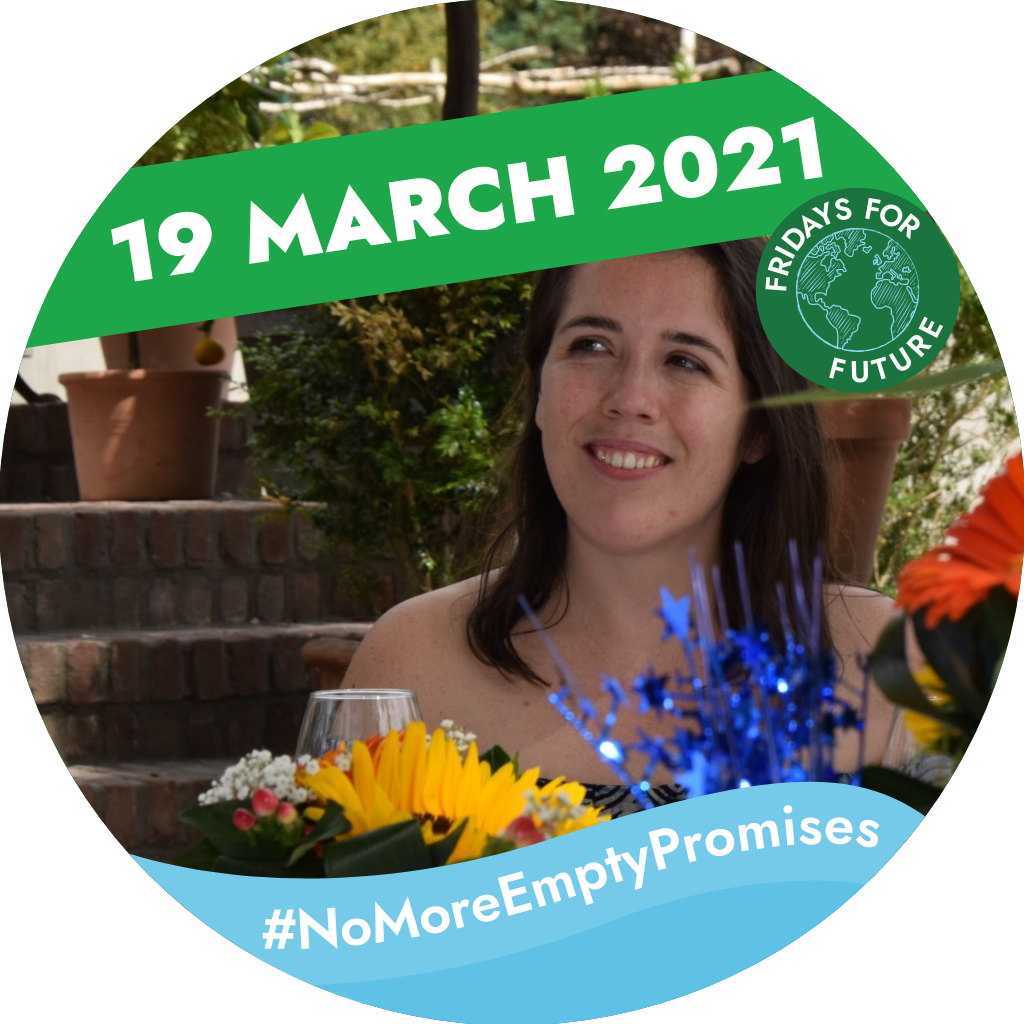
Throughout my PhD, I have looked at ways to become more active and create awareness about the inherent importance of water in relation to climate change—especially in today’s world where access to water is not a given, where water shortages structure conflict and inequality, and where narratives of the past are important to understanding relations of power and access to resources. After reading the statement that H4F issued last October, I felt compelled to reach out and join. I saw a group of scholars who had come together to contextualize and historicize the wider climate crisis and the fight for justice on all fronts. Cognizant of the fact that H4F is not as diverse as the realities of environmental thinking that exist in the fields we work and the world today, the goal is to use whatever power and privilege we do have to properly acknowledge and address the inherently interconnected, intersectional, and international dimensions of the wider climate crisis. I’m excited to help identify, develop, and offer meaningful, actionable content to support and encourage climate action through historical context, highlight the importance of water therein, and carve out a livable future for all. For the Klimastreik in Berlin, where I am now based, there will be a live online program from 12-3pm CET, and demonstrations by bike and boat at various points in the day. Organizers also encourage people to paint the streets of their neighborhoods with spray chalk, take pictures, and share these on social media with the hashtags: #AlleFür1Komma5 and #NoMoreEmptyPromises.
Dr. Isabelle Schuerch – Postdoctoral Fellow, University of Sheffield
I joined H4F in the summer of 2020. It was a hot summer, and another one for the record books. After having spent a lot of time (too much time?) lamenting the climate crisis with friends and colleagues on balconies and at dinner tables, I decided to do a bit more. That’s when I started looking for H4F and realised that there must be like-minded people out there willing to use their precious but precarious position as academics to collaborate and go beyond the “usual.” That’s how I met Lea and together we started regular meetings, working groups and projects. And in just a few weeks, we met so many other historians (and lovely individuals) who wanted to contribute themselves and their skills, competences and networks to create a great collective. As a collective, H4F adds important historical perspectives to the all-encompassing problem we all face, the climate crisis.
Mathijs Boom – PhD candidate, University of Amsterdam
When I began my PhD project, I had my doubts about the short-term impact of scholarship in a rapidly warming world—despite my love for historical research. But things are changing. As heating accelerates, I think we need initiatives like H4F to help us question and reimagine what it is we do as historians and how we can contribute to a better understanding of the challenges we face. I’m happy to have found such an international community of scholars who share these ideals. Historians have done great work showing, for example, that the climate crisis and environmental degradation have happened despite long-standing knowledge about industrial impacts; that economical thinking has strongly influenced the negligence of environmental damage; and that resistance against pollution has a long history itself.
My research deals with the ways in which people in the past, notably naturalists and geologists, imagined the relationship between humans and the landscape, especially in the lowland delta of the Netherlands, where I live—far below rising sea levels. In addition I’m a political liaison for the Dutch Extinction Rebellion (XR). H4F allows me to bridge those two roles and imagine how they might feed into each other. In the midst of Dutch parliamentary elections and strict measures against the pandemic, XR and other environmental organizations in the Netherlands are planning many small and medium-scale actions—legal and civilly disobedient. XR’s Spring Rebellion has already begun. On March 19th, thousands of people will gather in small groups around the country for a decentralized climate march.
Dr. Wilko Hardenberg – Senior Research Scholar, Max Planck Institute for the History of Science
I became aware of H4F in November 2020 when I came across the statement on Twitter. On a whim I decided to get in touch and become active. I’ve always been interested in environmental politics, but until now I have had a hard time in combining activism and scholarship. The climate crisis however is too important as a topic to just sit in the (crumbling) ivory tower and watch: action is necessary! As a historian I obviously think that knowledge about the contributes to frame the way in which we approach the future. Let’s also hope that it may make the difference. What is already happening is that the interaction with other passionate historians/activists is helping me to realise how to rethink my scholarship so that it is more attuned to the most urgent issues of our times. As far as I can tell, the March 19 strike in Berlin will take place as a livestream.
Gustave Lester – PhD candidate, Harvard University
Historians sometimes fret that if their work appears too concerned with the present that it will not be taken seriously. In graduate school, I became convinced that not only was it possible to do good history that was also useful, but that that was exactly the kind of history I wanted to do. No surprise, then, that I took immediate interest when my university department circulated a solicitation to join a group called “Historians for Future” and collaborate with like-minded individuals on projects at the intersection of history and the climate and biodiversity crisis. That the climate emergency demands radical and sweeping transformations is a fact as well-established as its realization is overdue. As a student of eighteenth and nineteenth century North American resource extraction and energy transitions—in all their imperialist, exploitative, and racist brutality—I believe history can provide important lessons for keeping inclusive and equitable climate justice at the heart of climate action now and in the future. To that end, in Philadelphia, where I currently reside, a chapter of Extinction Rebellion US is joining the call for solidarity with Indigenous leaders of Giniw Collective and Camp Migizi in opposition to the construction of a fossil fuel pipeline from Alberta to Lake Superior (click here to learn more and support their efforts).
Dr. Ben Pollitt – Associate Lecture, The Courtauld Institute of Art
I joined H4F last autumn. I am an art historian and at the time I was conducting research for the National Maritime Museum in London into the relationship between art and the weather. Art tells the story of the Anthropocene in ways that more than geologists can understand and artists and art historians are increasingly moving towards a deeper engagement with the scientific imaginary. The usefulness of historians in discussing climate change is also becoming ever more apparent, given their interest in unpacking and analysing the construction of narratives and the use, or misuse, of source material. Temperamentally, too, historians are also good at resisting that fainter sympathy, and try at least to spread the warmth of human understanding across time and space, developing empathy not only with those who lived in the past but also with our/humanity’s future selves.
The H4F network, which includes environmental scientists and historians of science, and the discussions that we have been having in our online meetings, have been truly inspirational, opening up different timeframes, different layers of history that challenge disciplinary boundaries, reaching beyond the local and the global to include the planetary, too. History now, and Art History, too, it seems, must engage in the processes that have formed and sustained the planet that we live on: the evolution of primary forms of life; the age of mountains, as well as buildings; old air in ancient ice; the history not so much of great men and women, but of great rivers and oceans.


